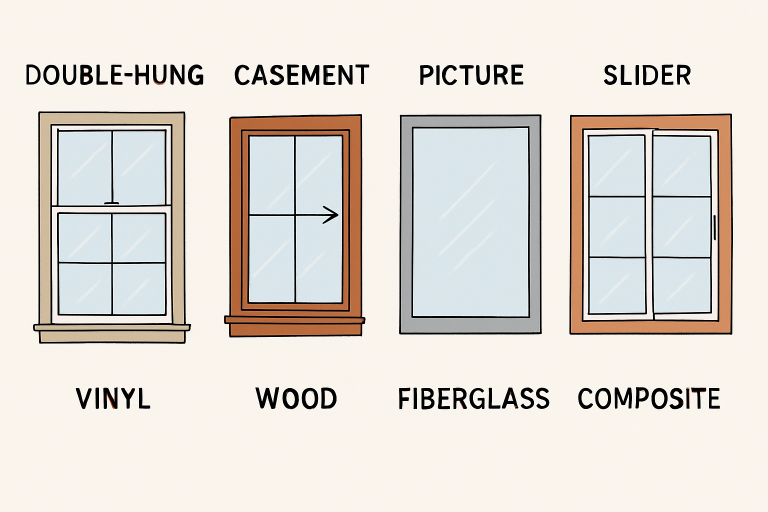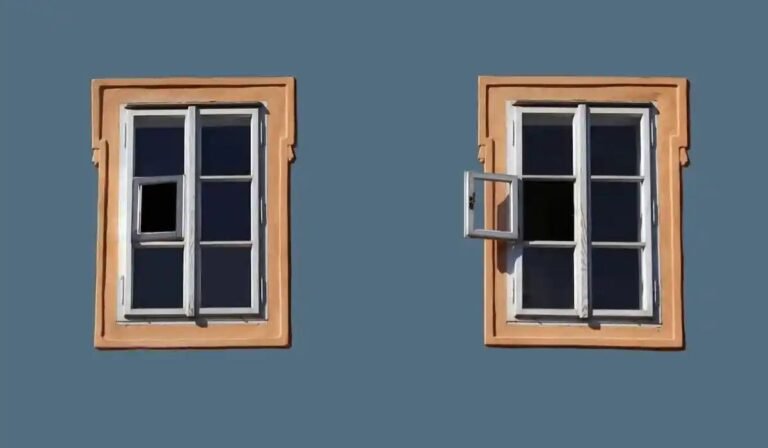Why Replacement Windows Matter for Every Home
Upgrading your windows is more than cosmetic—a smart investment paying off monthly. Well-chosen replacements regulate temperatures, protect interiors, and save energy long-term. They reduce temperature swings and maintenance chores, giving homeowners more enjoyment time.
Quality windows block outdoor elements while complementing your home’s architecture. This investment can boost your home’s appeal to future buyers and increase its market value.
Windows are essential for a home’s comfort, efficiency, and style. They provide natural light and aesthetic appeal, while significantly affecting functionality. Modern replacements can reduce noise, boost insulation, and increase curb appeal.
Old or damaged windows cause drafts, higher energy bills, and lower property value due to leaky seals and outdated frames, allowing elements inside and reducing comfort year-round. With innovations like Acclaim replacement windows, homeowners can enjoy advanced performance, durability, and exquisite design across various styles.
Types of Replacement Windows: Which Fits Your Style?
Choosing the right window begins with understanding popular styles and their benefits. Double-hung windows offer versatility and easy cleaning, suitable for many homes. Casement windows open outward, ideal for hard-to-reach areas and maximizing airflow, with a crank for convenience.
Picture windows provide unobstructed views and natural light, are fixed for energy efficiency, and block drafts. Slider windows slide horizontally, fitting modern or limited vertical spaces. Often, mixing window types tailored to each room works best—double-hung for bedrooms, casement or picture for kitchens and living rooms—ensuring optimal air, light, and function to enhance daily living.
Comparing Window Materials: Pros and Cons
Frame material impacts appearance, performance, and maintenance of windows. Vinyl is affordable, well-insulating, low-maintenance, moisture-resistant, and paint-free.
Wood offers classic charm and insulation but needs regular staining or painting to prevent weather damage, making it suitable for historic homes or warm aesthetics, but requires upkeep to prevent rot or insects. Fiberglass is durable, resistant to temperature changes, and can be painted, lasting decades with a higher cost.
Composite combines materials like wood, vinyl, and resins, balancing energy efficiency and low maintenance, with longevity comparable to fiberglass and less upkeep. Considering climate, design, and maintenance needs helps in selecting the right window material.
Energy Efficiency: More Than Just Glass
Advanced technologies make today’s windows far superior to older models both in performance and comfort. Look for low-emissivity (Low-E) coatings on glass, which reflect infrared light and insulate your home year-round.
Double or triple-pane windows with inert gas fills, such as argon, add layers of insulation, greatly reducing heat transfer and improving overall comfort levels during both winter and summer. These windows also help prevent condensation, which can reduce the risk of mold and prolong window life.
Frames with thermal breaks help minimize energy loss, boosting comfort and efficiency by blocking heat or cold from passing through the frame material. According to the Environmental Protection Agency, replacing outdated windows with efficient new ones can shrink your home’s energy footprint and improve indoor air quality.
The upfront investment often pays for itself by lowering monthly heating and cooling bills for years. Additionally, well-insulated windows can allow you to downsize your HVAC system requirements, reducing energy costs.

Design Upgrades: From Noise Reduction to Safety
Contemporary replacement windows do more than save energy—they make homes quieter, safer, and more livable. Features like multi-pane glass and tight-sealing frames reduce street noise, especially on busy streets or near airports. Improved locks and shatter-resistant glass enhance security against break-ins and impacts.
Many options like customized hardware, divided-light grilles, and privacy glass add style and functionality, with frame colors, tints, and textures to suit any décor.
Tips for Selecting the Right Window Contractor
Hiring a reputable window contractor is essential to ensure you benefit fully from the advanced features of new windows. Start by researching local companies, reading online reviews, and requesting references from neighbors or friends who have had similar work done.
Obtain written quotes from at least two or three professionals and verify their warranties, which can vary significantly between installers and manufacturers. Ask about experience with your preferred window style and materials, and confirm that installation crews are certified—proper installation is critical to performance and warranty coverage. Issue resolution and responsiveness in past projects can also be essential factors.
Conclusion: The Lasting Value of Upgrading Windows
Upgrading to modern, high-performance windows provides measurable benefits, from reducing heating and cooling costs to increasing property value and safety. The latest models offer a variety of decorative and functional features that add curb appeal and security while ensuring energy savings and lasting performance.
Homeowners can select beautiful, long-lasting solutions that fit their unique needs. Careful planning, diligent research, and professional installation ensure that your investment delivers both immediate improvement and value that lasts, enhancing your home’s comfort today and its attractiveness on the market tomorrow.
